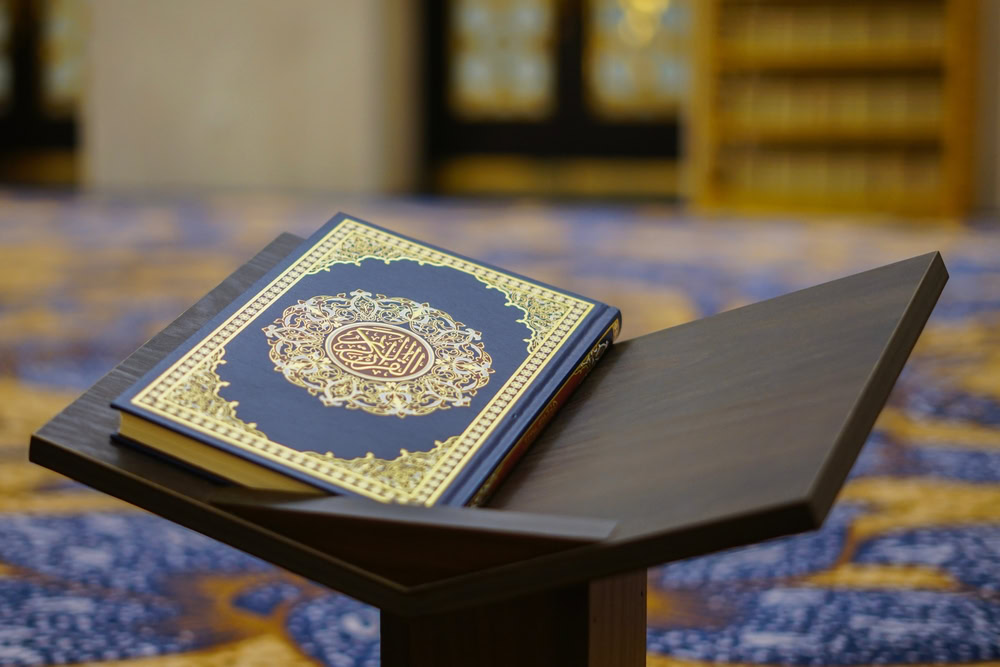Is It Necessary to Learn the Quran in Arabic?
Answered by Shaykh Anas al-Musa
Question
Is it Necessary to learn the Quran in Arabic?
Answer
In the name of Allah, the Most Gracious, the Most Merciful.
All praise is due to Allah, Lord of all worlds. Peace and blessings be upon the Messenger sent as a mercy to the worlds, our Master and Prophet, Muhammad, and his Family and Companions.
Yes, it is necessary to learn the Quran in Arabic, as Arabic is the language of the Quran. Allah (Most High) says:
“Indeed, We have sent it down as an Arabic Quran so that you may understand” [Quran, 12:2]
He also says:
“A Book whose verses have been detailed, an Arabic Quran for a people who know” [Quran, 41:3]
Reading the Quran translated into another language is not truly reading the Quran for several reasons:
1. The Quran’s Divine Structure and Meaning
The structure refers to the words and phrases of the Quran, and the meaning is what those words and phrases convey. The meaning alone is not the Quran; therefore, translation into any other language, no matter how precise and complete, is not considered the Quran.
2. Translation Errors in Understanding the Quran
The Quran encompasses literal and figurative language, homonyms, and general and specific terms. Translating these accurately can be challenging, leading to potential errors.
3. Risks of Inacurately Translating Quranic Meanings
The risk of error in translation and expression is real and observable. Thus, translations cannot be considered definitive for the Quran. The Quran was revealed in Arabic with its words and meanings, and its miraculous nature is tied to this language. The miraculous nature is lost in translation.
Imam Suyuti mentioned in al-Itqan:
“It is not permissible to recite the Quran by meaning because Gabriel delivered it with the specific wording, not by meaning alone. The reason for this is that the purpose is to worship with its words and to appreciate its miraculous nature, which no one can replicate with other words. Under each letter of the Quran are numerous meanings that cannot be fully encompassed, so no one can produce a substitute for it.”
Prohibition
Zurqani said in “Manahil al-Irfan fi ‘Ulum al-Quran”: The consensus among jurists is nearly unanimous in prohibiting the recitation of the Quran’s translation in any language, whether Persian or otherwise, whether in prayer or outside of it. He relayed the opinions of the Hanafi, Shafi‘i, Maliki, and Hanbali Schools of thought, all of which do not permit reading the Quran in any language other than Arabic, regardless of whether one is capable of reading Arabic or not.
Note: There is an opinion attributed to Imam Abu Hanifa, in which he diverged from his two companions, allowing the recitation of the Quran in languages other than Arabic (such as Persian) in prayer only. However, it is reported that the Imam later retracted this view and aligned with the opinion of his companions and the majority, stating that it is not permissible to read the Quran in a language other than Arabic if one is capable of reading it in Arabic. This is a fundamental jurisprudential issue, referenced in Hanafi texts, and I will mention some of these sources in the footnotes for further reading.
Summary
The Arabic language of the Quran is an inherent characteristic, despite it being a message to all people. Because of this, translators vary in their ability to convey the intended meaning, and their expressions in the translated language differ. This variation in meaning is akin to the differences found among interpreters.
When teaching non-Arabs the meanings of the Quran through translation, it should be made clear that this is not the Quran itself. It should be understood that this is a human effort to explain the meanings of Allah’s words, subject to error, misunderstanding, and limitations. This should be explicitly stated in the introductions of these translations. To emphasize this and as a precaution, scholars have mandated that any printed translation of the Quran should have the original Arabic text in the center of the page, with the translation printed in the margins, to continually reference the original.
You can find the above in the following books:
- Al-Itqan fi ‘Ulum al-Quran by Suyuti;
- Al-Kafi Sharh Usul al-Bazdawi by Saghnaqi;
- Al-Binaya Sharh al-Hidaya by ‘Ayni;
- ‘Umdat al-Qari Sharh Sahih al-Bukhari by ‘Ayni;
- Maraqi al-Falah Sharh Nur al-Idah by Shurunbulali;
- Al-Wajiz fi Usul al-Fiqh al-Islami by Zuhayli;
- Manahil al-‘Irfan by Zurqani;
- Mawsu‘at al-Fiqhiyya al-Kuwaytiyya.
May Allah bless the Prophet Muhammad and give him peace, and his Family and Companions.
And Allah knows best.
[Shaykh] Anas al-Musa
Shaykh Anas al-Musa, born in Hama, Syria, in 1974, is an erudite scholar of notable repute. He graduated from the Engineering Institute in Damascus, where he specialized in General Construction, and Al-Azhar University, Faculty of Usul al-Din, where he specialized in Hadith.
He studied under prominent scholars in Damascus, including Shaykh Abdul Rahman al-Shaghouri and Shaykh Adib al-Kallas, among others. Shaykh Anas has memorized the Quran and is proficient in the ten Mutawatir recitations, having studied under Shaykh Bakri al-Tarabishi and Shaykh Mowfaq ‘Ayun. He also graduated from the Iraqi Hadith School.
He has taught numerous Islamic subjects at Shari‘a institutes in Syria and Turkey. Shaykh Anas has served as an Imam and preacher for over 15 years and is a teacher of the Quran in its various readings and narrations.
Currently, he works as a teacher at SeekersGuidance and is responsible for academic guidance there. He has completed his Master’s degree in Hadith and is now pursuing his Ph.D. in the same field. Shaykh Anas al-Musa is married and resides in Istanbul.
